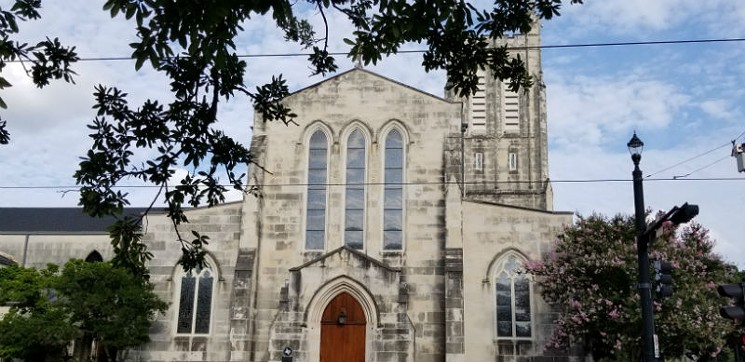Support Us
Houston's independent source of
local news and culture
account
- Welcome,
Insider - Login
- My Account
- My Newsletters
- Contribute
- Contact Us
When the Church May Not Be Enough For Mental Health Issues Among African Americans
[
{
"name": "Related Stories / Support Us Combo",
"component": "11591218",
"insertPoint": "4",
"requiredCountToDisplay": "4"
},{
"name": "Air - Billboard - Inline Content",
"component": "11591214",
"insertPoint": "2/3",
"requiredCountToDisplay": "7"
},{
"name": "R1 - Beta - Mobile Only",
"component": "12287027",
"insertPoint": "8",
"requiredCountToDisplay": "8"
},{
"name": "Air - MediumRectangle - Inline Content - Mobile Display Size 2",
"component": "11591215",
"insertPoint": "12",
"requiredCountToDisplay": "12"
},{
"name": "Air - MediumRectangle - Inline Content - Mobile Display Size 2",
"component": "11591215",
"insertPoint": "4th",
"startingPoint": "16",
"requiredCountToDisplay": "12"
}
,{
"name": "RevContent - In Article",
"component": "12527128",
"insertPoint": "3/5",
"requiredCountToDisplay": "5"
}
]
Mental illness is a real issue which haunts many people; however, there is one particular demographic that is consistently overlooked—those who are African American. Many African Americans have created a culture where they are taught to keep your business to yourself, and if you need help, then talk to your pastor or suck it up because no one has time to deal with your whining.
In this culture, we have characters that we have created and mimic—“The strong black woman” who carries the weight of the world on her shoulder without help or reprieve, or “The Hard Black Man” he goes through life suffering in silence as to not further emasculate himself. These characters we seek to achieve are not real people.
According to the National Alliance of Mental Illness, or NAMI, “…African Americans sometimes experience more severe forms of mental health conditions due to unmet needs and other barriers.” In fact, it continues with, “According to the Health and Human Services Office of Minority Health, African Americans are 20 percent more likely to experience serious mental health problems than the general population”, and among those serious disorders are Post-traumatic Stress Disorder (PTSD), which is a common disorder in this particular demographic because of the violence and racism to which African Americans are continually subjected.
There is a heightened sense of paranoia among this demographic. Meaning, the trauma caused by images of violence, affect the psyche of those who look like the victims of systemic racism which still haunts our country.
Many, if not most, African Americans feel victimized every day, and often wonder, “When am I next?”. From personal experience, there are some things that I just do not allow my son to do, like walk home after the sun goes down because that fear of him being a victim is very real, regardless of his class rank, or how well-spoken he is.
The suicide rate for African Americans is among the highest when compared to other groups of people because of outside factors that are more prone to affect them like, homelessness and unemployment.
Traditionally, quite a few African American communities are rooted in the church, or religion, and those who struggle with identifying their own mental illnesses are often told to “pray about it” or “get over it”, and it is all too common to have been told to seek counseling through their churches.
Elizabeth Lyons, LPC of The Adolescent Center & Mental Health Services in Houston, has noticed that in light of the services, both free and through insurance, African Americans are still holding to the notion of seeking “counseling” through their church and they continue to lean on the notion of prayer to aid them improving their mental health.
To that Elizabeth responds, “If God knew that all they had to do was come to Him, then why have therapists here in the now, to help them?” In most cases, there is no response to her query. She urges, “If your religions suggest that He will provide all of your needs, then He has provided what you need—a therapist.”
The bigger issue is the lack that education surrounding mental illness in the African American communities. Most are reluctant to seek help because the stigma is “I’m crazy”, and when considering medication, the issue often arises about the concern of being a “zombie”—which Elizabeth responds with, “Neither of these true.”
You cannot pray away PTSD, major depression, or suicidal thoughts—they are not demons! If you know someone who you feel may be suffering silently, don’t just call or text them urge them seek help and hold their hand and re-assure them that they are not alone.
I am neither the anti-Christ, nor am I anti-religion, but there is a serious epidemic in our communities and sometimes the resolution lies outside of the church.


